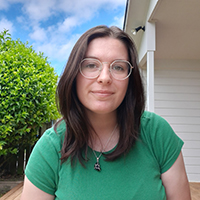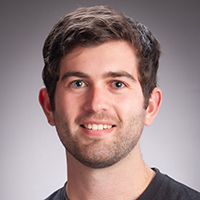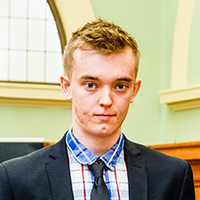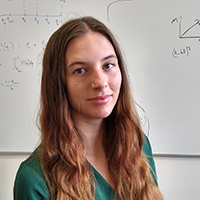2023 NASA JPL interns
The 2023 NASA Jet Propulsion Laboratory (JPL) interns were announced in March 2023.
See updates from their internship journeys:
2023 NASA Jet Propulsion Laboratory Interns
NASA JPL Programme
These internships were offered as part of the JPL Visiting Student Research Programme. The programme offers research opportunities to students who have a compatible research interest with NASA JPL. The programme takes place at NASA JPL facilities in California and internships typically last 10 to 16 weeks.
As part of their internships, students are partnered with JPL scientists, who serve as the students' mentors. Students complete designated projects outlined by their mentors, gaining educational experience in their fields of study while also contributing to NASA and JPL missions and science.
Opportunities for collaboration with a diverse range of other interns and JPL staff are provided in both formal and informal settings.
This was the first cohort of Kiwi students selected to undertake in-person internships at NASA’s JPL. The 2021 and 2022 JPL Internship Programme was offered online under the NASA JPL Covid-19 remote working conditions.
Further information on the JPL Visiting Student Research programme can be found on the JPL website
JPL Visiting Student Research Program(external link) — JPL California Institute of Technology
NASA JPL interns 2023
Celine Jane
Celine is currently working towards a Master of Engineering at Te Herenga Waka—Victoria University of Wellington. She also has an Honours degree in Electronic and Computer Systems Engineering.
Celine’s research focuses on control system design for spacecraft using electromagnetic propulsion. She has also spent some time as an embedded software engineer within the New Zealand aerospace start-up scene.
During her internship, Celine worked on creating the capability to use a tiny piece of code (a ‘micropatch’) to fix a single software vulnerability, without requiring a system reboot, on mission-critical spacecraft. Celine is interested in using space technology to explore new horizons for humankind and innovate for the benefit of society.
With the skills she gained during the internship, Celine wishes to contribute to the growth and development of the New Zealand space economy by pursuing further aerospace research and applying it in industry.
Daniel Wrench
Daniel is completing a PhD in Physics at Victoria University of Wellington.
After studying statistics, Daniel pursued his passion for space by working with a space plasma physicist to study signal processing of the solar wind.
During his internship, Daniel worked with a Jet Propulsion Laboratory data scientist to apply neural networks, a popular machine learning algorithm used in AI, to speed up an engineering calculation called topology optimisation. This calculation involves finding the best layout of materials, given certain constraints to the design.
Daniel looks forward to sharing his experience with the New Zealand Students' Space Association, a club for young space enthusiasts that he helped found in 2018.
Jack Naish
Jack completed his Bachelor of Science with Honours in Artificial Intelligence at Te Herenga Waka—Victoria University of Wellington. Jack recently earned his Private Pilot license and is type rated to fly an A160 aircraft.
During his internship, Jack worked on the Exo-biology extant life surveyor (EELS) mission concept under the mentorship of Rob Royce. EELS is a robotic snake platform designed to explore englacial conduits on Earth and subsurface features on ocean worlds such as Saturn’s moon, Enceladus. Jack’s project aims to develop intelligent control algorithms to help EELS explore extreme terrain.
With its unique design, EELS will allow the Jet Propulsion Laboratory to explore new corners of our solar system. Its destination, Enceladus, is known to contain large concentrations of methane and molecular hydrogen – key building blocks for microbial life. When contrasted against other parts of the solar system, the moon’s unique glacial conduits put an entire subsurface ocean within reasonable reach.
Leah Albrow
Leah has been captivated by space since visiting Mount John Observatory near Lake Tekapo as a child, where she was able to observe New Zealand’s pristine dark skies.
Leah’s internship saw her working on the Exoplanet Watch project. She was responsible for conducting large-scale data analysis of exoplanet transits collected by students and amateur astronomers, in order to identify new planets or signals of orbital changes of currently known targets. By combining this data with hundreds of existing datasets, she aimed to optimise the use of large telescopes, such as the James Webb Space Telescope, by reducing uncertainty around the timings of transit events.
Through her work on this project, Leah hopes to involve more people in astronomical research and contribute to the ongoing search for exoplanets that could support life.
Following the completion of her internship, Leah planned to continue her studies in astronomy and become an astrophysics research scientist.
 Michaela Dobson
Michaela Dobson
Michaela is completing her PhD in Geology/Astrobiology at the University of Auckland. Michaela’s PhD research looks at some of the oldest evidence of fossilised life on Earth, and how this can help us search for life on other planets such as Mars.
Michaela’s interest in geology and space was sparked by growing up in Christchurch, where she would go on weekend hikes in the alps with her family. At university, Professor Kathleen Campbell showed Michaela that she could combine her passions by using Earth’s geologic settings and the life that forms in them, such as the hot springs in Rotorua, to search for life on other planets.
During her internship, Michaela assisted the Mars 2020, Jezero Crater, Perseverance Rover team, who are currently searching for signs of ancient microbial life on Mars. Specifically, she worked in the Astro biogeochemistry lab with Dr Michael Tuite looking at a fossilised hydrothermal/hot spring system that was outflowing into a lake in Nevada. Michaela geologically mapped the environment and undertook laboratory work on collected samples to investigate how this system formed and where to search for life. This was to inform the Mars 2020 team on where to search for life in Jezero Crater, if Perseverance comes across hot spring deposits.
Michaela hopes that this internship will lead to future collaboration between New Zealand researchers and the NASA Mars 2020 team.





